The views expressed in our content reflect individual perspectives and do not represent the authoritative views of the Baha'i Faith.
Welcome to a three-part series that chronicles a man’s transformation from being the rising leader of the white nationalist movement to an advocate for anti-racism. Read part 2 and part 3.
In 2016, I read an article about Derek Black in The Washington Post, and I’ve never forgotten how I felt when I first started reading it. The article began by explaining how Derek was raised to be the next leader of white nationalism. Derek is the son of a former Ku Klux Klan leader — his father created the first major hate website, a site where Dylan Roof, the man who murdered nine black people in a historic African American church in Charleston in 2015, had an account. As I read, I felt particularly disturbed about how Derek targeted children to believe in white nationalism, successfully spread racist memes across the internet, and launched a daily radio show that helped popularize the conspiracy theory of “white genocide.” But, despite feeling sick to my stomach, I forced myself to keep reading.
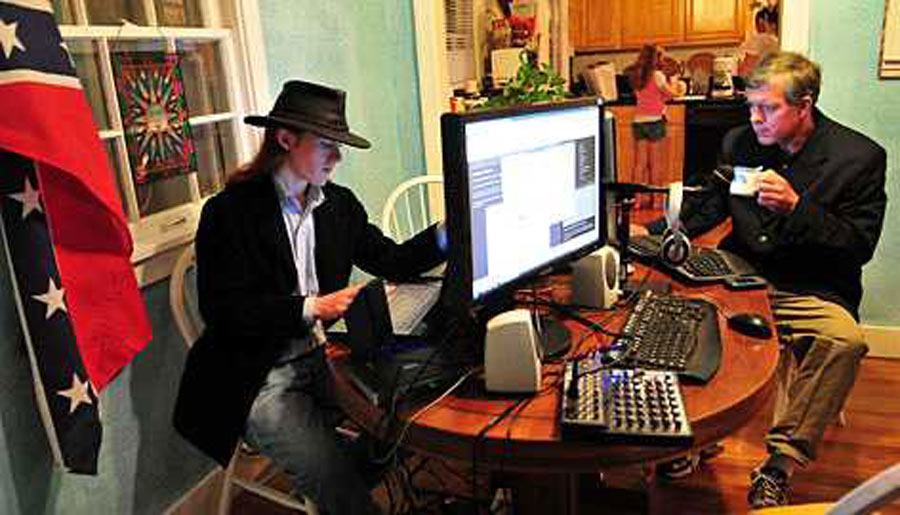
To my surprise, I reached a point in Derek’s story where something happened that I did not expect: He attended the New College of Florida, a multicultural college. Once there, he befriended many Jewish students — which is significant because white nationalism is deeply antisemitic. As he built genuine friendships with his classmates and became exposed to their socially conscious worldview, Derek found all his white supremacist views being debunked. Two years later in 2013, Derek completely denounced white nationalism.
So in February when I heard that the Baha’i Chair for World Peace at the University of Maryland, an academic program that uses an interdisciplinary approach to foster discourse on global peace, was co-sponsoring a conversation with Derek Black, I knew I had to attend. I was curious to hear his story first-hand and learn how he freed himself from hate. After all, the Baha’i Writings state that “the happiness of mankind lieth in the unity and the harmony of the human race.” – Abdu’l-Baha, Selections from the Writings of Abdu’l-Baha
Derek began his talk by explaining his family background and the ideology of white nationalism. He shared how he grew up being taught by his dad that integrated schools and voting rights for all were an “existential threat to white people.” In addition, Derek said white nationalists believe “race is a fundamental building block of humanity, that nothing defines humans more than racial groups, and that they’re easily definable.” Under this framework, your racial identity predicts everything from educational outcomes to whether you’re a criminal. White nationalists believe “everybody would be happier if there was worldwide segregation,” Derek said.
For white nationalists, Derek explained, being white is fundamental to their identity, outlook, and pursuits in life.
“They marry other people in white nationalism, they have children in white nationalism, their children’s babysitter is a white nationalist, [and] they live that life,” Derek said.
Most of them replaced religion with whiteness because they believe, as Derek said, “There’s no reason to think about God because you have your race to consume all your time.”
It made me sad to hear that people place so much importance on race, a man-made construct. As a Baha’i, I believe that all people were created equal and are members of one human race. The Baha’i Writings say:
Concerning the prejudice of race; it is an illusion, a superstition pure and simple, for God created us all of one race. … In the beginning also there were no limits and boundaries between the different lands; no part of the earth belonged more to one people than to another. In the sight of God there is no different between the various races. Why should man invent such a prejudice? How can we uphold war caused by such an illusion? – Abdu’l-Baha, Baha’u’llah and the New Era
Sadly, white nationalists believe that the United States only belongs to them. They perpetuate this prejudice through calculated and consistent outreach and propaganda.
“They show up to meetings, they donate money, they volunteer their time, and that’s still a relatively small number of people, but their goal is to produce material, to constantly refine their message, to figure out ways they can reach people who are more subtly in agreement with what they’re saying,” Derek said.
He explained that their goal is to take people from a casually racist perspective where “they will still defend themselves and say, ‘I’m not racist, but…’ and try to bring them to a place where they say ‘No, no, no! It’s all about race and I’m proud of being white and we need to push back on social justice’.”
Since Derek believed in segregation, the moderator of the event, Rebecca Shankman, asked him why he decided to go to a very inclusive college. Derek explained that he attended that specific college for normal reasons, such as tuition costs and academic standing, and had no idea how impactful his experience there would be.
Indeed, when word got out about Derek’s ideology during his second semester, the campus community ostracized him — except for one individual who reached out to him, hoping to change his mind.
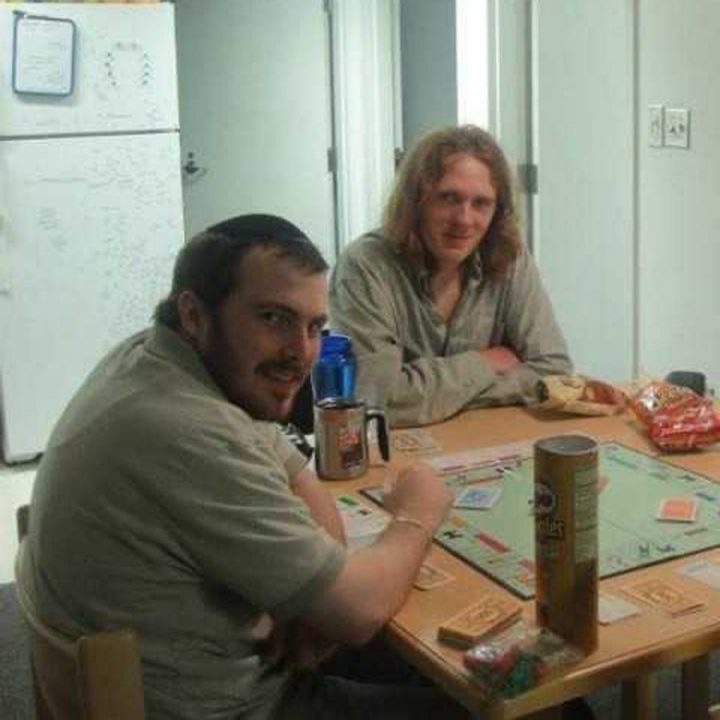
“A [Jewish] guy who I knew before I was even outed hosted Shabbat dinners and reached out to me, knowing my ideology and my family’s ideology is deeply antisemitic, and said, ‘Do you want to come to dinner?’” Derek said.
Derek said “yes” and continued going to dinner after dinner for two years. During these dinners, Derek had the opportunity to interact with a diverse community. “Those conversations [felt] very intellectual and they were heated sometimes, but they were private, and they were individual,” he said.
Those dinners also prompted Derek to do some of his own research about, for example, racialized propaganda about crime statistics or IQ. But facts alone didn’t change his heart. “It was the personal relationships that made me open to reading though,” Derek said.
Those relationships were able to be built because Derek and his new friends didn’t let disagreements separate them from each other. The Baha’i Writings say:
Do not allow difference of opinion, or diversity of thought to separate you from your fellow-men, or to be the cause of dispute, hatred and strife in your hearts. Rather, search diligently for the truth and make all men your friends. – Abdu’l-Baha, Selections from the Writings of Abdu’l-Baha
“When I showed up at college,” Derek said, “It was not new to me that people were opposed to racism and white supremacy. It was not the first time that I had heard that race is a social construct. It was not the first time that I heard that this is a destructive ideology, but I had never heard it before from anyone that I cared about.”
Derek explained that when you have a personal connection with someone, you have a conviction that they matter and as a result, you have a responsibility to not put their lives in harm’s way.
Although I am still disturbed by Derek’s upbringing, his talk served as a reminder that a relatively small group of people can have a tremendous impact on the beliefs, rhetoric, and behaviors in society. Hearing his story lit a fire under me to continue bringing people together for dialogue about race unity. As Derek shared, white people are being systematically targeted by white nationalists, but he’s living proof that hearts and minds can be changed.
You May Also Like
Comments



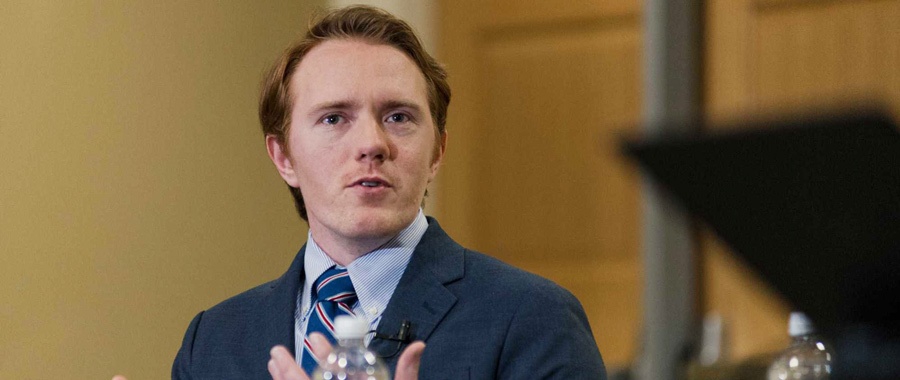




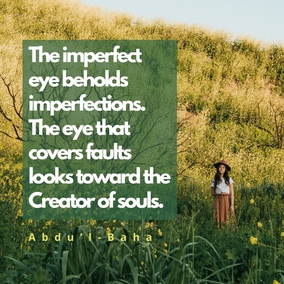
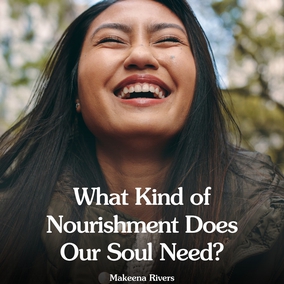







but even someone bred to be hardcore. The most important prescription for rescuing another soul from the prison of hatred is love. Only love can conquer hate as demonstrated when Derek explained the catalyst for his change.
It wasn't facts or righteous indignation; it is a genuine friendship "with someone, you have a conviction that they matter and as a result, ...you have a responsibility to not put their lives in harm’s way." Truly love is the most powerful weapon against hate, no matter how deep that hatred is, and no one is incorrigible.